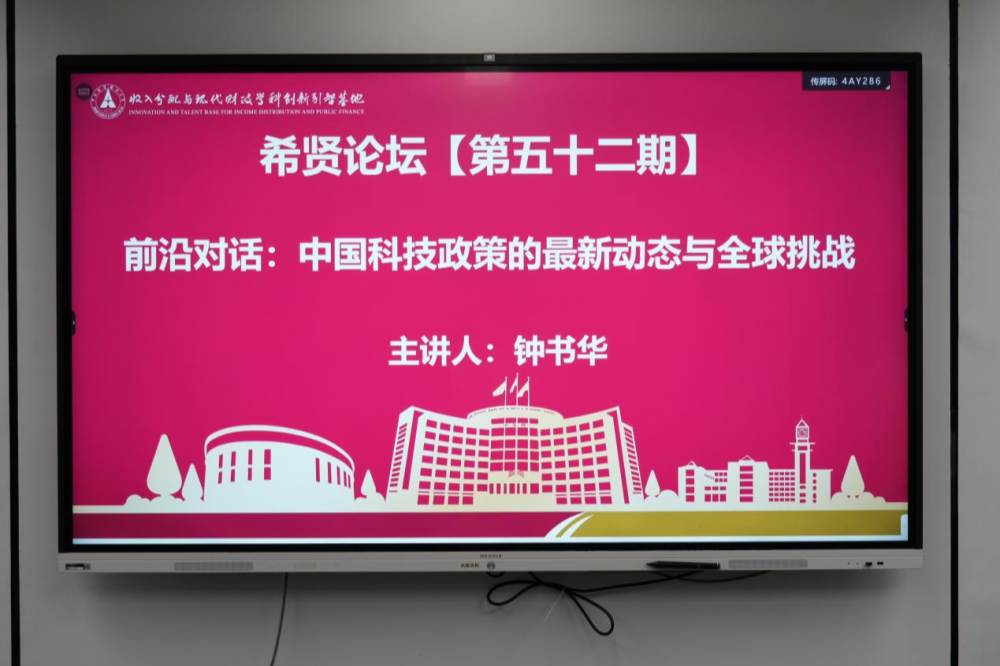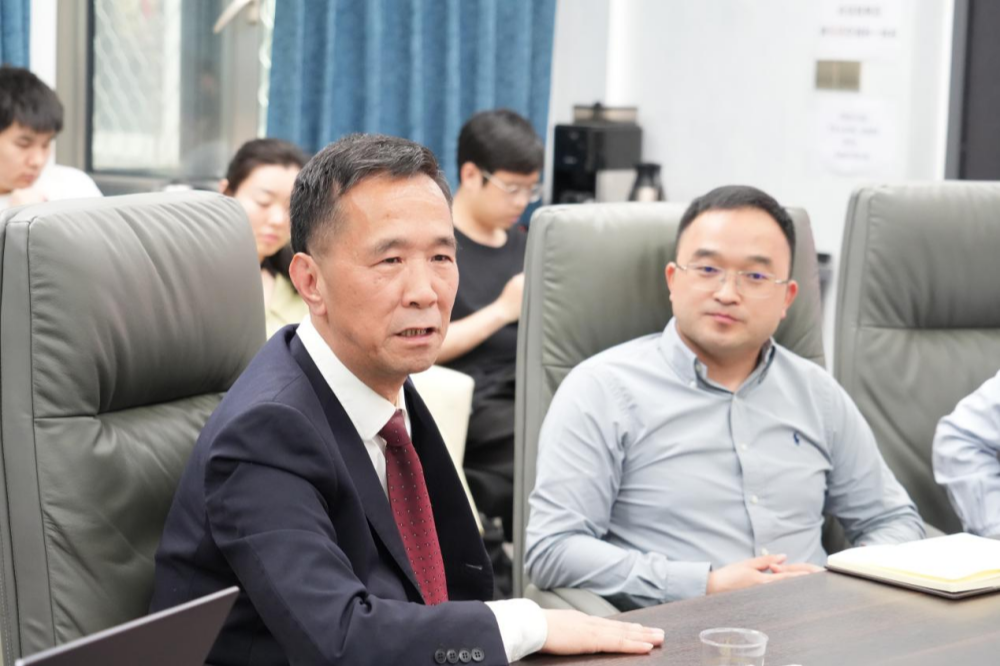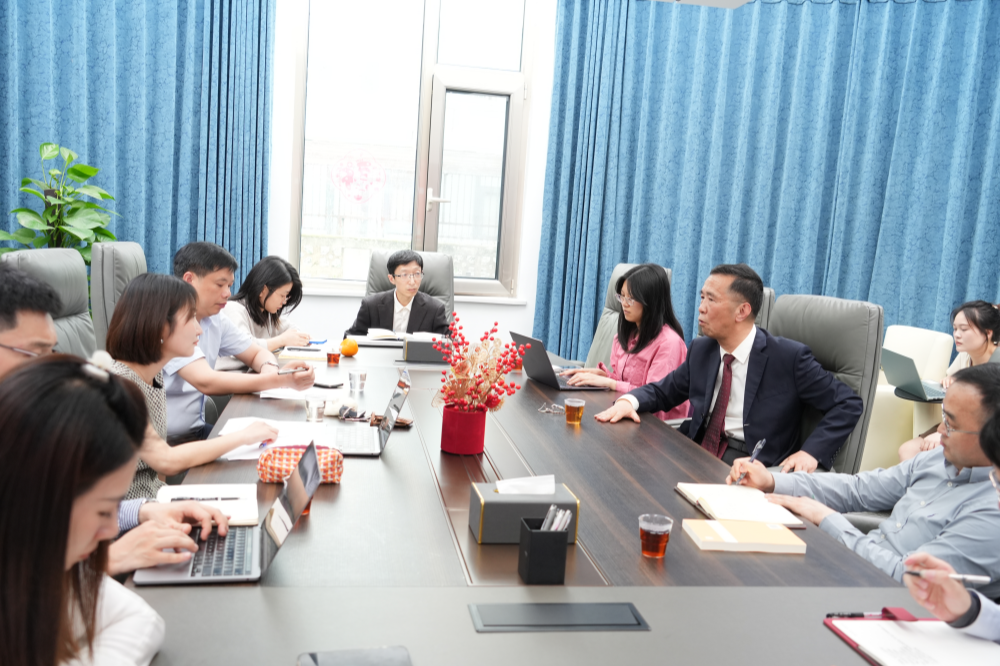(Correspondent Wu Tao) The 52nd Xi Xian Forum, co-hosted by the Innovation and Talent Base for Income Distribution and Public Finance (Base) and the School of Public Finance and Taxation, was successfully held on April 24, 2024, in Conference Room 119 of Wenqin Building. Professor Zhong Shuhua from the College of Public Administration, Huazhong University of Science and Technology, as a guest speaker at the 52nd Xi Xian Forum, delivered a keynote speech entitled "The Latest Trends in China's Science and Technology Policy and Global Challenges". The academic forum was presided over by Professor Zeng Jingjing from the School of Public Administration. More than 30 teachers and students attended the academic conference, including Professor Jin Rongxue, Professor Xie Hongtao, and Professor Ye Jingjing from the School of Public Finance and Taxation, Professor Lu Yuanping, Executive Director of the Base, and Zou Jianwen, Research Fellow of the Base.

Since the founding of the People's Republic of China, the dream of becoming a strong scientific and technological country has been deeply rooted in national construction and development. Since the reform and opening up, China has established a national strategic science and technology infrastructure and promoted the establishment of a series of laboratories and innovation centers from the central to local levels. Since the 18th National Congress of the Communist Party of China (CPC), three main approaches have been formed: constructing laboratories, national and regional innovation centers, exploring self-reliance and strength in science and technology, and carrying out reforms of the scientific and technological system. In terms of planning and market features, Mr. Zhong clarified that major innovation cannot rely on planning through the examples of the Soviet Union, the United States and Europe, but spontaneous independent innovation led by entrepreneurs. In addition, the essence of science is to promote the growth of knowledge and the application of technology. In terms of scientific research and technological management, Mr. Zhong pointed out that China's current scientific and technological evaluation system should be fundamentally reformed. For innovative labor and creative research, performance indicators should not be strictly used for evaluation, but should be innovation-oriented, focusing more on the innovation achievements and comprehensive evaluation of researchers, and avoiding opportunistic scientific research tendencies. Finally, on the issue of China-US friction in science and technology, and international scientific and technological governance, Mr. Zhong concluded that the main reason for the China-US scientific and technological friction is the superposition of cultural differences, national interests, and ideological conflicts between Western civilization and Confucian civilization. With the disappearance of global scientific and technological dividends, only by enhancing our own scientific and technological strength can we better cope with international scientific and technological challenges.

Mr. Zhong brought a wonderful lecture to the faculty and students present while also triggering deep contemplation among them. In the discussion session, teachers and students spoke enthusiastically and interacted with each other on China's science and technology policies and management, China-US scientific and technological friction, etc.

Keynote Speaker: Zhong Shuhua, second-level professor at the College of Public Administration, distinguished professor at the School of Marxism, doctoral supervisor, Huazhong University of Science and Technology. He enjoys "special government allowance from the State Council" and is Vice Chairman of the Hubei Association of Science of Science and Science & Technology Policy Research. He has published more than 360 papers in journals such as Scientific Research Management, and Studies in Science of Science, 19 books including Science Park Management, China Enterprise Technology Alliance, and National Science and Technology Plan and Awards, and presided over 4 national social science fund projects, 2 major soft science research projects of the Ministry of Education, 1 key science and technology project of the Ministry of Science and Technology and a number of provincial and ministerial-level projects. He is the first scholar in China to study enterprise technology alliances, enterprise accelerators, innovation clusters, and intelligence specialization. His research results have been widely cited by academia. The "Theory of Whole-nation System for Science and Technology" put forward by Zhong Shuhua was adopted by the state. His two decision-making consultation reports were adopted by the General Office of the CPC Central Committee, and his three policy suggestions were approved and adopted by the then-governor of Hubei Province. Additionally, his research results on various fields such as consulting market cultivation, enterprise technology alliance, university science park construction, national science and technology award system reform, eco-industrial park construction, and enterprise acceleration network have been adopted by the Ministry of Science and Technology, the Ministry of Education, and the National Office for Science and Technology Awards respectively.
